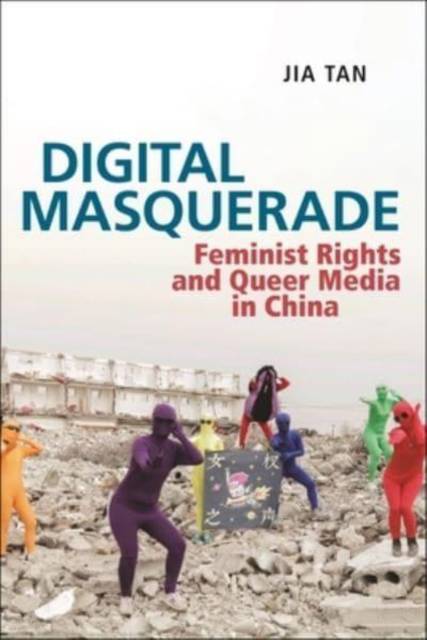
- Retrait gratuit dans votre magasin Club
- 7.000.000 titres dans notre catalogue
- Payer en toute sécurité
- Toujours un magasin près de chez vous
- Retrait gratuit dans votre magasin Club
- 7.000.0000 titres dans notre catalogue
- Payer en toute sécurité
- Toujours un magasin près de chez vous
Description
Charts a new wave of feminist and queer media activism in post-millennial China
Digital Masquerade offers a trenchant and singular analysis of the convergence of digital media, feminist and queer culture, and rights consciousness in China. Jia Tan examines the formation of what she calls "rights feminism," or the emergence of rights consciousness in Chinese feminist formations, as well as queer activism and rights advocacy. Expanding on feminist and queer theory of masquerade, she develops the notion of "digital masquerade" to theorize the co-constitutive role of digital technology as assemblage and entanglement in the articulation of feminism, queerness, and rights. Drawing from interviews with various feminist and queer media practitioners, participant observation at community events, and detailed analyses of a variety of media forms such as social media, electronic journals, digital filmmaking, film festivals, and dating app videos, Jia Tan captures the feminist, queer, and rights articulations that are simultaneously disruptive of and conditioned by state censorship, technological affordances, and dominant social norms.Spécifications
Parties prenantes
- Auteur(s) :
- Editeur:
Contenu
- Nombre de pages :
- 224
- Langue:
- Anglais
- Collection :
- Tome:
- n° 30
Caractéristiques
- EAN:
- 9781479811830
- Date de parution :
- 14-02-23
- Format:
- Livre relié
- Format numérique:
- Genaaid
- Dimensions :
- 152 mm x 229 mm
- Poids :
- 449 g

Les avis
Nous publions uniquement les avis qui respectent les conditions requises. Consultez nos conditions pour les avis.






